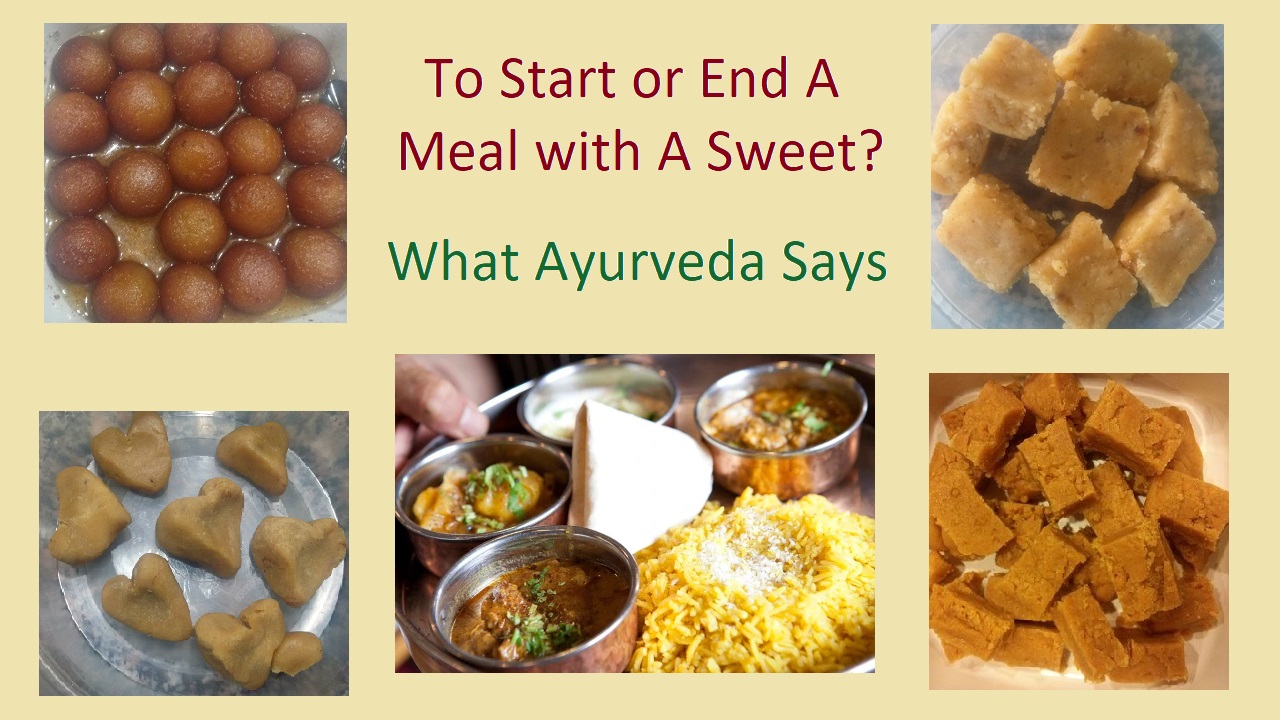Should We Start or End A Meal with A Sweet?
By P.V.R. Narasimha Rao

A lot of people suffer from health problems these days, due to accumulation of toxins (undigested or poorly digested food) in the digestive tract. Accumulation of toxins over a long period may eventually result in inconsistent appetite, acidity, gas, elimination problems such as constipation, headaches, muscle aches etc.
There are many reasons for this toxic buildup, like not eating at the right time, not eating the right food for one's body type, not eating the right amount (i.e. too much or too little), eating food with chemicals, eating stale food, eating incompatible foods together, eating mechanically without focus and enjoyment, etc.

In this writeup, I'll discuss one specific eating habit that is not only sub-optimal but can be toxic, namely eating sweet/dessert at the end of a meal. This is a mistake according to Ayurveda. I too was doing this, but changed the habit and it made a big difference!
Eating dessert at the end of a meal is a European idea. But it has become very common in India.
As [3] says, "Somewhere along the way we have conditioned ourselves to seek the sweet taste at the end of the meal — it’s a dangerous path, a slippery sugary slope. If you are a dessert fiend, try this “sweet taste first” principle for a week and notice if your digestion feels stronger."
Indian wisdom systems are very advanced and well-developed over many millennia. However, foreign invasions and colonial rule undermined them and Indians got trapped in some terrible notions and habits inherited from their colonial masters.
Eating dessert at the end of a meal is a European idea. Ayurveda very clearly teaches to start a meal with a sweet. Of course, the idea is not to eat a whole cake or to eat 20 Gulab Jamuns (which is a bad idea whether at the start or end of a meal). The idea is to eat a small amount of sweet and make it the first item one eats in a meal.
If one overeats sweets at the beginning, it can indeed kill appetite. But, if one eats a small amount, it does not kill appetite. Instead, it produces saliva and digestive juices that are conducive to digesting the rest of food better.
More importantly, eating sweets at the end of a meal is a disastrous habit that puts so much stress on the digestive system and spoils one's health.
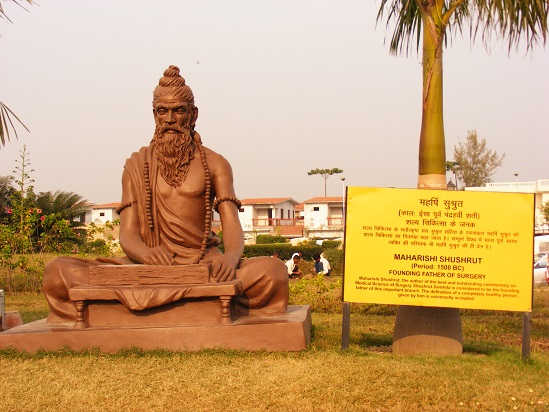
Maharshi Sushruta's Ayurvedic treatise "Sushuta Samhita" clearly recommends the order in which 6 tastes should be consumed in a meal:
(1) Sweet
(2) Sour
(3) Salty
(4) Pungent
(5) Bitter
(6) Astringent
One should eat food items with these predominant tastses, in that order. "Vishnu Purana" also mentions the same order.
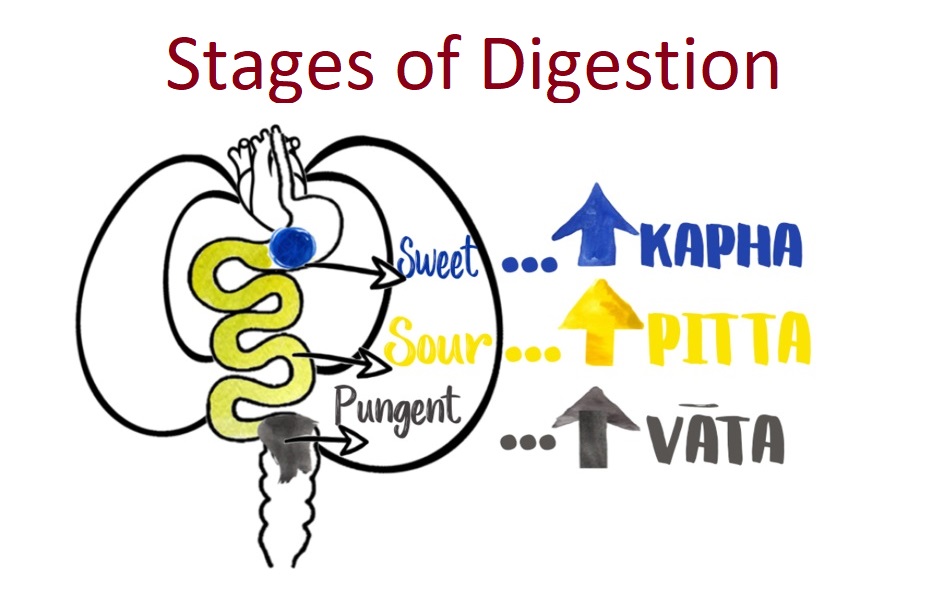
This has to do with the order in which foods are digested in the body. Digestion is a 3-stage process (kapha stage, pitta stage and vata stage) and the tastes above provoke the production of digestive juices needed for the 3 stages of digestion and get digested in that order.
Eating sweets provokes the production of saliva and digestive juices that are necessary for the first stage of digestion - the kapha stage.
If you eat a sweet at the end, much of the saliva and digestive juices produced for kapha stage digestion get unused and become toxins. Also, as they are produced late, foods eaten before will miss them and may struggle to be digested.
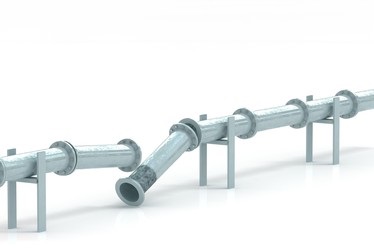
Secondly, sweets are easy to digest. If you eat them first, they get broken down fast, give sugar to the blood and foods that are tougher to break down can follow later. If sweets are eaten last, they get trapped behind other foods that are still being broken down and digested. So they ferment and don't get digested properly. Anything not properly digested becomes a toxin.
Basically, eating sweet at the beginning keeps the pipeline of the digestive process smooth. Eating sweets at the end breaks the pipeline of the digestive process and causes problems.
There is another angle to consider. As sweets cause salivation, eating a sweet when one is full can cause a false sense that one needs more food and one may end up overeating. On the other hand, eating something bitter or astringent at the end stops that salivation and one does not overeat.
Take this real-life example from a meal served to us the other day at a New Year party. This is very common in the mainstream.
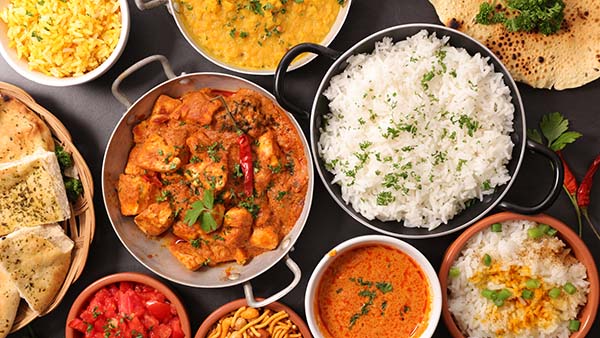
They served dhokla, pakoras and peas kachoris as "appetizers". People use that term for any snack, irrespective of whether it increases appetite or slows it down! Chickpea flour in dhokla and pakoras and peas in kachoris have complex proteins that take hours to break down.
They served chapatis, koorma, pulav and sambar-rice for "main course". Those items have more carbs and are easier to digest than "appetizers". But they get trapped behind the proteins eaten earlier for a few hours. Not an efficient way to set up the pipeline!
Gulab jamun and double ka meetha (a sweet made of bread) served as dessert at the end are quite carb-heavy and very easy to digest, but get trapped for many hours behind all the other food and ferment. They are unlikely to be properly digested in the end and likely to become toxins.
Eating and sleeping are two of the most important activities governing our well-being and most people don't do either right. 😢
Especially for Indians, it is a shame that correct knowledge is available from our ancient sciences such as Ayurveda but is ignored and that foolish habits inherited from colonial masters are retained, contributing to a populace with unhealthy lifestyles and habits.
This mistake is so common that people look at me strangely when I start a meal with a sweet at a party!! 😃😢
Here are a few online articles you can read on this subject for more information.
[1] To be healthy, eat sweet first!
https://medium.com/@iuveda/to-be-healthy-eat-sweet-first-a3d109df776c
[2] Begin your meal with something sweet: Ayurveda
https://timesofindia.indiatimes.com/life-style/health-fitness/diet/begin-your-meal-with-something-sweet-ayurveda/articleshow/45452360.cms
[3] Eat Sweet First to Manage Weight
https://www.banyanbotanicals.com/info/blog-the-banyan-insight/details/eat-sweet-first-to-manage-weight/
[4] Ayurvedic Doctor Says Most People Make This Common Eating Mistake
https://www.drbrahma.com/ayurvedic-doctor-says-most-people-make-this-common-eating-mistake/
[5] Why Ayurveda Says You Should Start Your Meal With Something Sweet And End With Spicy
https://food.ndtv.com/food-drinks/why-ayurveda-says-you-should-start-your-meal-with-something-sweet-and-end-with-spicy-1801722
